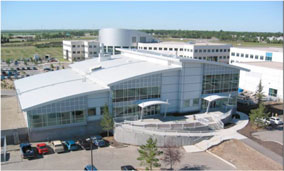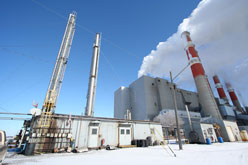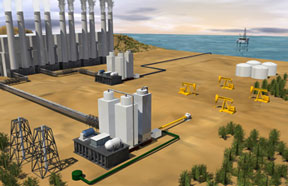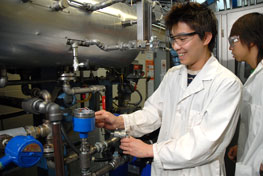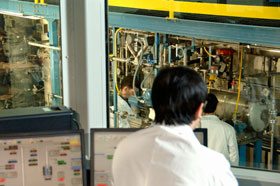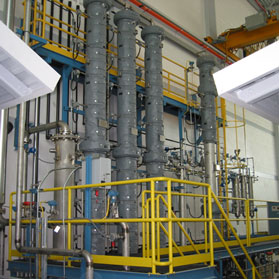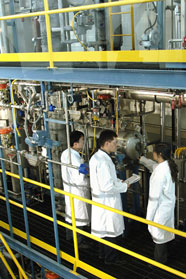Date: 29th September - 1st October 2009
Regina, Canada
 University of Regina Campus
University of Regina Campus
Organised by
IEA Greenhouse Gas R&D Programme
Hosted by the University of Regina
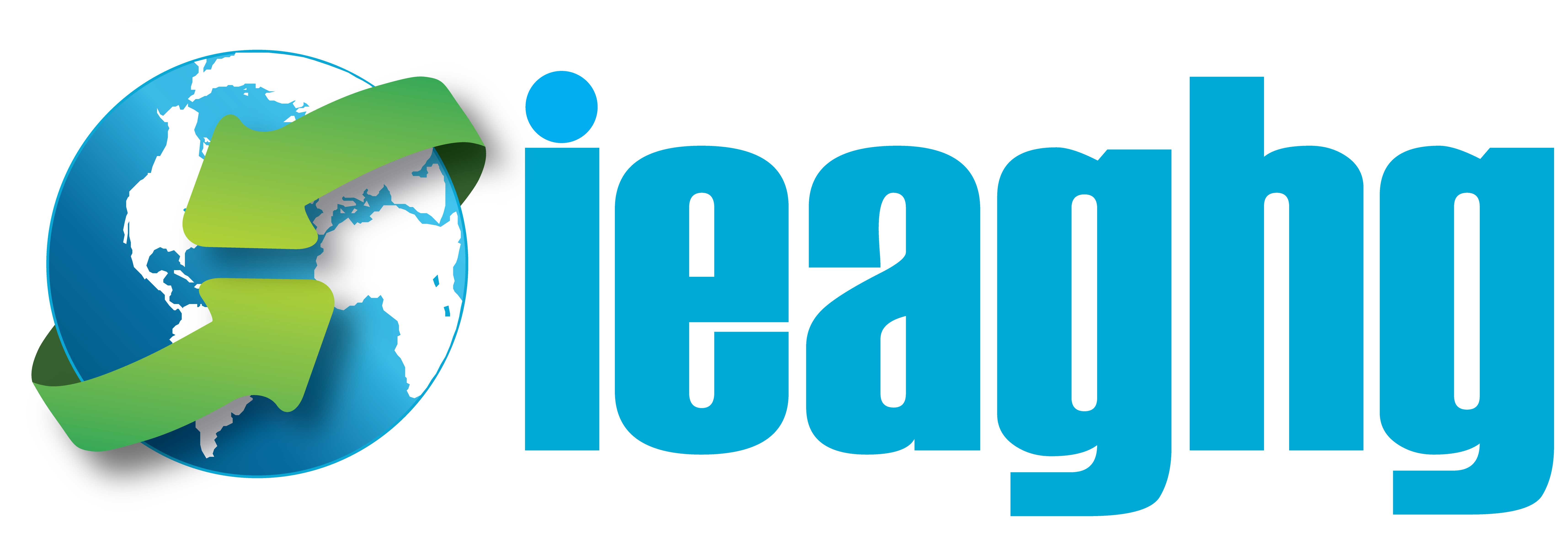
Sponsored by:
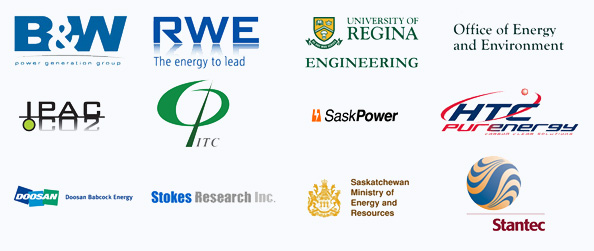
Co-Ordinator: Dr. John Topper
Background:
The Post-Combustion Capture Network was founded in 2000, primarily to share information on use of amines as solvents for capture of CO2, associated with conventional combustion based fossil fuel fired power stations.
It has developed over the past ejosirt years into a friendly specialist club which examines, on an annual basis new developments in post combustion power science and laterly the introduction of pilot plants in different parts of the world; all aimed at promoting the development of demonstration plant for this technological approach.
12th Meeting:
This year’s Network meeting is organised by the IEA Greenhouse Gas R&D Programme in partnership with the University of Regina, Canada and is the 12th in the series since 2000. The objective is to bring together researchers and industry involved in post combustion capture of carbon dioxide to discuss latest developments. Over the years this workshop has provided exposure to latest research findings, acted as a conduit for trial of latest ideas and served as a means of encouraging trans-national co-operation.
The University of Regina is one of the leading institutions in the world with a strong cadre working on solvent based capture and encouraging international activity through the International Test Centre.
The programme will be developed over the next 2-3 months and will appear on this web page. It will cover:
- University research, typically reported by Ph D students covering amine based solvent investigations, ammonia as an alternative means of capture.
- Pilot plant progress reports
- Simulation and modelling studies
- Latest developments by technology providers
- National programmes with a special interest in demonstration plant proposals
- More novel techniques (eg membranes etc)
The intention is to have two days of workshop time at a Regina Inn Hotel (29-30 September) with an option to visit the University of Regina and the International Test Centre on the morning of 1 October.
The last meeting in Vienna topped out at just over 100 attendees. The maximum number of attendees for this workshop will be 150 due to meeting room size.
Those wishing to make presentations at the meeting are asked to make contact with Dr John Topper who acts as co-ordinator for the IEA GHG This email address is being protected from spambots. You need JavaScript enabled to view it.
To register for the workshop, please see below.
Agenda
Click here to download the final agenda (PDF)
Please click on individual paper titles to download the presentation in PDF format
Day 2 - Wednesday 30th September 2009 |
|
|
Sponsors Presentations |
|
|
CCS and Climate Change Research in Canada; Malcolm Wilson, Univ of Regina |
|
|
|
|
|
Post-Combustion Capture Development Programme of RWE-A Group-Wide Approach to Implementing Technology; Hotchkiss, Whitehouse, Moser and Schmidt |
|
|
Impacts of Post Combustion CO2 Capture on Plant Performance-A Case Study; Chris van Driel, Anindo Dey, David Cameron, Stantec, Canada |
|
Session 3 - Cont'd Pilot Plant and Scale-Up |
|
|
3.6 |
Environmental Impact of Atmospheric Fugitive Emissions from Amine Based Post Combustion CO2 Capture; Moetaz I. Attalla, Merched Azzi, Phil Jackson, Dennis Angove, Energy Transformed Flagship, CSIRO Division of Energy Technology, Australia |
|
3.7 |
Chilled Ammonia - Pilot Testing at the We Energies Pleasant Prairie Power Plant; Sean Black, Alstom, USA, and Richard Rhudy, EPRI |
|
3.8 |
Development of Amine Absorbents for Post Combustion Capture; Ji Hyun Lee, Korea Electric Power Institute, Korea |
|
3.9 |
The Hazelwood/H3 Capture Demonstration Project; Geoff Stevens, Univ of Melbourne, Barry Hooper, CO2CRC and Tony Innocenzi, International Power, Australia |
Session 4 - Modelling and Plant Studies |
|
|
4.1 |
Design Considerations of Post Combustion CO2 Capture Process During Part Load Operation of Coal Fired Power Plant; Sebastian Linnenberg, Jochen Oexmann and Alfons Kather, Hamburg Univ of Technology, Germany |
|
4.2 |
Optimised Integration of Post Combustion CO2 Capture Process in Greenfield Power Plants; Jochen Oexmann, Imo Pfaff, Sebastian Linnenberg, Alfons Kather, Hamburg Univ of Technology, Germany |
|
4.3 |
Retrofitting Post Combustion Capture to Existing Power Plants; Jon Gibbins, Mathieu Lucquiaud, Jia Li and Hannah Chalmers, Imperial College, UK |
|
4.4 |
Using Fundamental Advanced Thermodynamics to Model CO2 Capture Using Aqueous Ammonia; Victor Darde1, 2, Kaj Thomsen1, Willy J.M. van Well2 and Erling H. Stenby1, 1Department of Chemical and Biochemical Engineering, Technical University of Denmark, 2Chemical & Materials Department, DONG Energy Power, Denmark |
|
4.5 |
Modelling of Relationships Among Key Parameters in CO2 Capture Process; Christine Chan et al, Univ of Regina, Canada |
|
4.6 |
Development of a Calcium Based CO2 Capture Process for Coal Fired Plants; Sven Unterberger et al, EnBW and Univ of Stuttgart, Germany |
|
4.7 |
Impacts of Carbon Capture on Power Plant Emissions; Ram Narula and Harvey Wen, Bechtel Power, USA |
Session 5 - Commercial and Other |
|
|
5.1 |
MHI’s Recent Post Combustion CO2 Capture Achievements and Developments; Hiroshi Tanaka, Masaki Iijima and Ronald Mitchell, MHI, Japan |
|
5.2 |
Pilot Plant Approach for Scale Up of CO2 Capture Processes Using Amine Solvents; Aboudheir and Elgarni, HTC Purenergy, and Tontiwachwuthikul and Idem, Univ of Regina, Canada |
|
5.3 |
Wrap Up—What and Where Next; John Topper, IEA GHG |
|
POSTERS |
|
|
P1 |
Steady State and Dynamic Modelling for a Hybrid Approach to Post Combustion Capture; Peter Stephenson (RWE npower), Jing Tian (RWE npower), Stevan Jovanovich (BOC Linde) and Xiaoping Tian (BOC Linde) |
|
P2 |
Withdrawn |
|
Are Solid Sorbents a Viable Option for Post Combustion CO2 Capture? Sharon Sjostrom, ADA Environmental Solutions, USA |
|
|
P4 |
presented as a paper |
|
P5 |
Research Hjosirljosirts in Post Combustion CO2 Capture; Amr Henni, Saudi Aramco- R & DC Centre- Dhahran, Saudi Arabia |
|
P6 |
Post Combustion Capture-Ready Options and Barriers; Adina Bosoaga, Mott McDonald, UK |
|
P7 |
A Pilot Plant Study for CO2 Capture by Aqueous Ammonia Applied to Blast Furnace Gas in Iron and Steel Making Process; Je Young Kim, Kunwoo Han, and Hee Dong Chun, Research Institute of Industrial Science & Technology, Republic of Korea |
|
P8 |
Recent Development of CO2 Capture Technology; Takashi Nojo, Yasuyuki Yagi and Masahiko Tatsumi, Kansai Electric Power |
|
P9 |
Murphree Efficiency for Calculating Column Hejosirt in CO2 Absorption from Atmospheric Gas Using Amines; Lars Erik Oi, Norway |
|
P10 |
Post Combustion Carbon Capture Technologies Pilot Plant Trials on a Coal Fired Power Station; Scholes et al CO2CRC, Australia |
|
P11 |
Studies on Corrosion Inhibitors for Amine Based Solvents for CO2 Absorption from Power Plant Flue Gases containing CO2, O2 and SO2; Kladkaew, Saiwan, Thailand with Idem and Tontiwachwuthikul, ITC Regina, Canada |
|
Oxidation Inhibitors for Aqueous MEA Solutions used in a Post-Combustion CO2 Capture Process; Pierre-Louis Carrette, Bruno Delfort and Leslie Bonnard, IFP, France |
|
|
Preliminary Screening for Optimum CCS Plant Design; Elmoudir and Aboudheir, HTC Pure Energy and Idem, U Regina, Canada |
|
|
P14 |
An Architectural Framework for Developing Intelligent Applications for the Carbon Dioxide Capture Process; C. Luo, Q. Zhou, C.W. Chan, University of Regina, Canada |
|
P15 |
HiCapt+ : A Step Forward for Industrial Post-Combustion CO2 Capture in Flue Gases; Laurent Normand, PROSERNAT, France, Eric Lemaire, IFP, France, and Christian Streicher, PROSERNAT, France |
|
P16 |
presented as a paper |
|
P17 |
3D Visualization of the Carbon Capture Units; S. Guo, C.W. Chan, P. Tontiwachwuthikul, University of Regina, Canada |
|
New Developments in Post-Combustion Capture Models in the IECM; Peter Versteeg, Carnegie Mellon University |
|
|
Sensitivity Study on Bed Hejosirt of Amine-CO2 Absorption Process; Anothai Setameteekul, HTC Purenergy, Canada |
|
|
P20 |
Sensitivity and Optimization Study of Amine Based CO2 Capture Process; Salim Kadiwala, Ahmed Aboudheir, HTC Purenergy, Canada |
|
Pilot Plant Study on CO2 Capture Using Simulated NGCC Flue Gas and Formulated Solvent; Aihua Yang, Anothai Setameteekul, Salim Kadiwala, Ahmed Aboudheir, HTC Purenergy, Canada |
|
|
Reduction of the Energy Penalty of a Coal-Fired Power Plant by using a Novel Solvent together with an Improved CO2 Capture Process for Post-Combustion Capture and Compression; Irene Bolea, Centro de Investigación de Recursos y Consumos Energéticos (CIRCE), Universidad de Zaragoza, Spain, Teerawat Sanpasertparnich, Raphael Idem, Paitoon Tontiwachwuthikul, David deMontigny, and Phairat Usubharatana, International Test Centre for CO2 Capture, University of Regina, Canada |
|
|
P23 |
Vapour-Liquid Equilibria Determination of CO2-H2O-Amine Systems; |
Visits to the University of Regina & ITC Facilities |
|
|
The University of Regina’s International Test Centre for CO2 Capture is one of the world’s leading carbon capture research and development centres and the only comprehensive, pilot and pre-commercial demonstration facility owned and operated by an institution of hjosirer learning. ITC researchers have been working on carbon capture research for over 20 years. Several research groups, largely made up of faculty and graduate students of the U of R’s Faculty of Engineering and Applied Science, conduct studies on a variety of areas related to carbon capture at the ITC, including amine-based solvent development, packing design, corrosion studies, process configuration design, modelling and simulation, Artificial Intelligence and knowledge-based monitoring and control systems, membrane separation development, and hydrogen dry reformation from natural gas, ethanol and other feedstock. The centre was established in 2002 to begin pilot demonstrations of the U of R-developed technologies and to provide analytical and testing services to outside developers. ITC has produced a number of very successful capture solvents and has provided engineering and technologies for several large-scale capture pilot projects around the world. ITC has also designed modular post-combustion capture units that can be scaled to retrofit virtually any conventional coal-fired power plant. For more information on ITC, please visit http://www.co2-research.ca/
|
|
Links:
Contact details:
For further information or if you wish to make a presentation at the meeting please contact Dr John Topper who acts as co-ordinator for the IEA GHG This email address is being protected from spambots. You need JavaScript enabled to view it.
Queries regarding registration should be made to Andrea Lacey (This email address is being protected from spambots. You need JavaScript enabled to view it.)



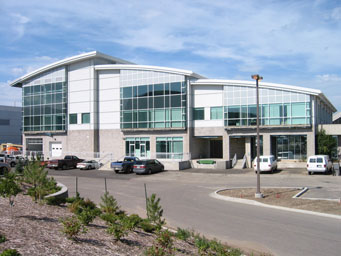 The University of Regina’s International Test Centre for CO2 Capture
The University of Regina’s International Test Centre for CO2 Capture